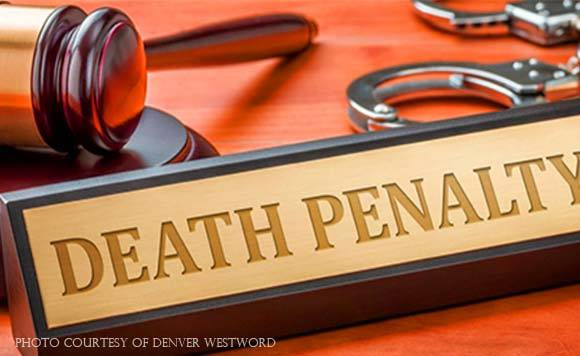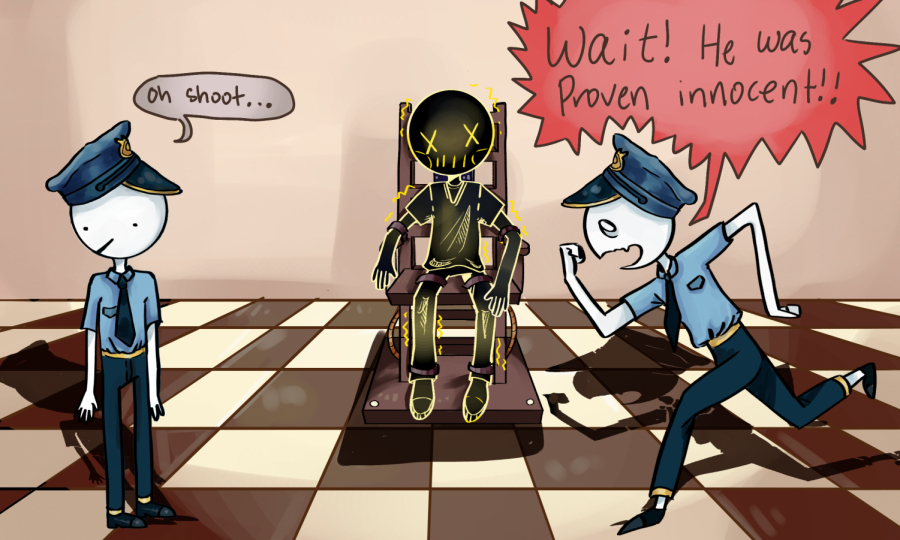Hell on Earth: The Revival of Punishment by Death in the Philippines
- Harald Avanzado Pujida
- Oct 22, 2021
- 4 min read
Opinion Blog by Harald Pujida

Photo Courtesy of Denver Westword
Talks about the revival of the death penalty in the Philippines have sparked controversies and are argued about by the citizens. Will it actually serve its purpose and lower the rates of criminality? As the Great Martin Luther King said, "Returning violence of violence multiplies violence, adding deeper darkness to a night already devoid of stars". Will violence, by itself, solve our worries? All of our societal problems have root causes, so why not tackle those in the first place? How can we guarantee that such ordinance won’t be used in the interest of those in power? In this blog, I will discuss the dehumanizing act of punishment by death, and its potential effects on our society as a whole.
Before we get to the point, let us have a very short recap of this administration’s drug war. Thousands of people in the Philippines have been killed ever since President Rodrigo Duterte stepped foot in his office and launched his “war on drugs” on June 30, 2016. Among those who were killed were dozens of children under age 18, that were either specifically targeted or were accidentally shot during anti-drug raids, these are what authorities refer to as “collateral damage”. According to the PDEA, there were about 6000 drug war fatalities by December 31 of 2020, not including those that were not documented. According to BBC Asia, in December 2018 alone, the Commission on Human Rights (CHR) estimated the number of drug-war killings could be as high as 27,000. A huge number compared to the documented killings, but do numbers really matter if innocent lives are at stake? It has victimized not hundreds but thousands of people, and to think that a lot of them were innocent or were killed on the spot without due process during these operations. It’s terrifying how for government officials, it’s easy to say “shoot to kill” on National TV, but hard to give justice to the innocent lives that were taken by this supposed war against defenseless people. Despite all the killings, the drug war was still a failure as Filipinos could still buy drugs anytime and anywhere from the Philippines, admitted by Colonel Romeo Caramat on Reuters. Violence did nothing but trim the sprouts of the deeply rooted grass.
Death Penalty, by definition according to Merriam Webster, is death as a punishment given by a court of law for very serious crimes. In our country, apparently, drug use is seen as a heinous crime, but in a psychological aspect, addiction is a brain disease that is manifested by compulsive substance use despite harmful consequences. If punishment by death was to be used against people who were mentally ill, then wouldn’t it do more harm to society when we authorize it for other crimes? What is death penalty for? Is it to free the world from criminals, or is it just another excuse for some law enforcers to abuse their power and use it against the poor and the defenseless? What could possibly happen if we give them the license to kill? Brutality is currently an existing problem with our law enforcers as the offenders. Imagine the things power-hungry officers could do when they are actually permitted to do so.
As suggested by Human Rights experts, imposing Death Penalty might even affect social minorities. The weight of death penalty would be unfairly carried by those with less privileged socio-economic backgrounds or people belonging to racial, ethnic, or religious minorities. As a part of the LGBTQ+ Community myself, this issue is of great significance to me and the history of my people. Historically, the LGBTQ+ Community was subjected to extreme violence. Even today, being gay is punishable by death in countries like Yemen and Iran. I am in fear of what would happen to me and my people if we once again allow this stream of violence to flow in our society.

Cartoon by Jayne Ogilvie-Russell
Our justice system is broken and there is no absolute human judgment, unfair trials are imminent. There will be a possibility of executing innocent people, and when they are, there will be no turning back. An execution is irreversible, anyone proven innocent later on, will never get their lives back ever again. “If execution is unacceptable, what are the alternatives?” you might ask. We have prisons to separate criminals from society and rehabilitate them. Rehabilitation gives one a chance to learn about their problems, offers for one to learn how to change their behavior in order to not commit crimes, and maybe help them re-integrate back into society. For people with heavy crimes, like rape, I’d rather them rot in jail for the rest of their lives and suffer the consequences of their unforgivable crimes. Execution for them is an easy way out to escape the guilt—if they have any. Death penalty was never even proven to be effective. There is no credible evidence that the death penalty prevents crime more than incapacitation and rehabilitation. In fact, countries, like Canada, didn’t experience a rise in crime figures after banning death penalty.
Some political figures and other people with power might even turn the law around and use it for their own interest, like what happened to countries like Iran and Sudan. Even without the death penalty being legislated in our country, killings are still propagating. There will be no assurance that no one would abuse the legislation of Death Penalty.
When you seek vengeance in disguise of justice, you are enabling a culture of violence. Death penalty violates the most fundamental human right, which is the right to life. Sadly, there are people who prefer retribution over rehabilitation. Although I cannot truly speak over them as I have not experienced heinous crimes firsthand, even so, I will still stand for what I personally believe in. If we look back at the drug war, did killing actually solve the problem? It failed, and it brought along thousands of innocent lives, people who were not given the right to due process and we’re just shrugged off as accidental killings. I am in great disbelief of people approving of such inhumane acts. It just proves that a large chunk of the population probably has the same barbaric way of thinking: to punish other people with extreme violence/murder. You might not have a gun, you wouldn’t be the one doing such a level of cruelty, but tolerating and supporting such acts do not make you any less of a murderer.
References
https://www.hrw.org/report/2020/05/27/our-happy-family-gone/impact-war-drugs-children-philippines
https://newsinfo.inquirer.net/1390134/drug-war-death-toll-reaches-6011-as-of-december-2020-pdea
https://www.reuters.com/article/us-philippines-drugs-performance-exclusi-idUSKBN2010IL
https://www.merriam-webster.com/dictionary/the%20death%20penalty
https://www.psychiatry.org/patients-families/addiction/what-is-addiction
https://www.aclu.org/other/death-penalty-questions-and-answers
https://www.amnesty.org/en/what-we-do/death-penalty/death-penalty-your-questions-answered/
https://www.ohchr.org/en/NewsEvents/Pages/DisplayNews.aspx?NewsID=22208&LangID=E




Comments